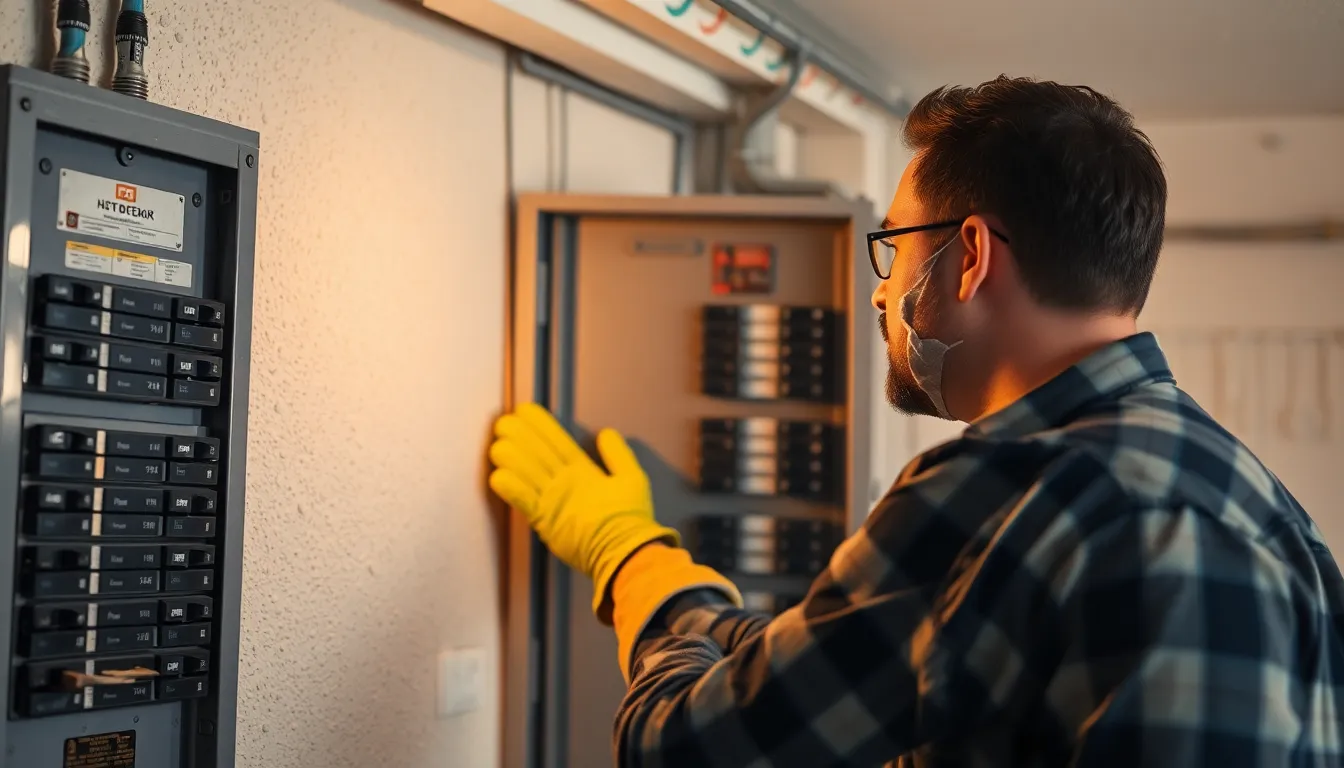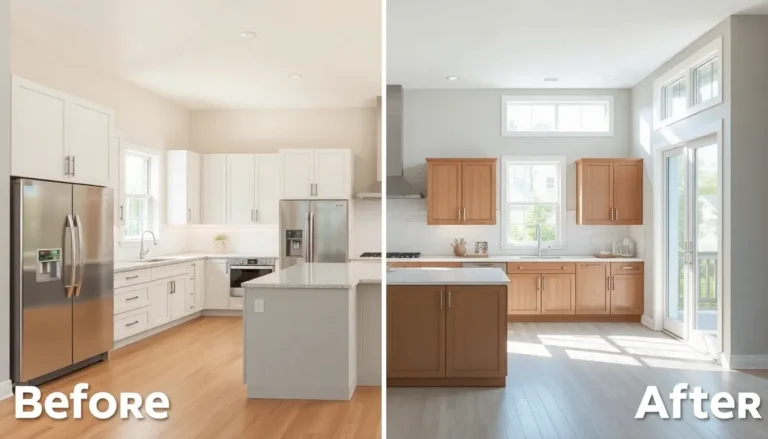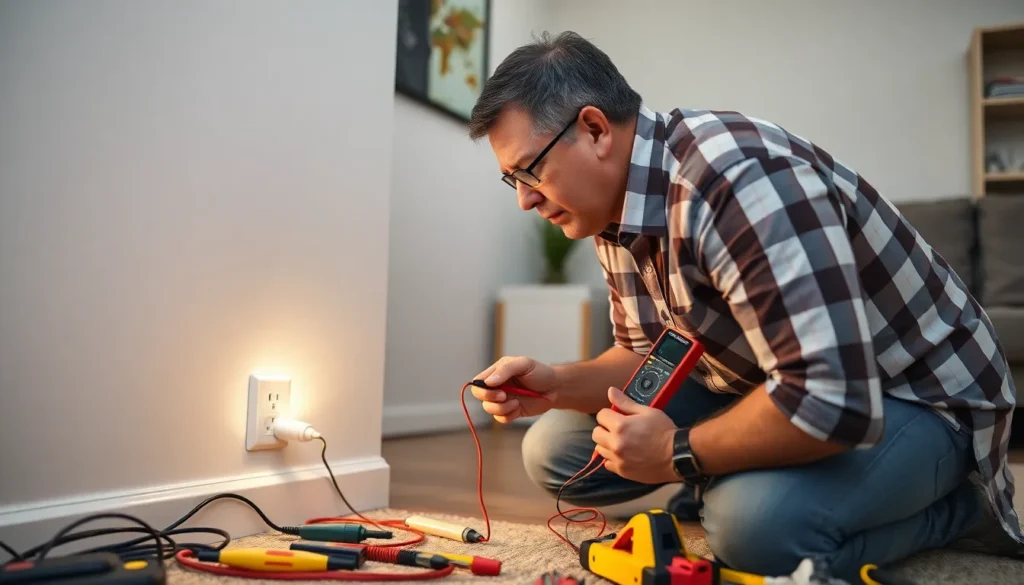Table of Contents
ToggleHome electrical safety isn’t just a buzzkill—it’s essential for keeping your castle standing and your hair intact. Imagine flicking a switch and being greeted by a shocking surprise. Not the kind that makes you laugh, but the one that sends you straight to the emergency room. Yikes!
Understanding Home Electrical Safety
Home electrical safety plays a vital role in preventing dangerous situations and protecting residents. Recognizing risks and implementing safety measures significantly reduces the likelihood of accidents.
Importance of Electrical Safety
Prioritizing electrical safety minimizes the risk of fires, shocks, and other hazards. Statistics show that electrical failures cause about 51,000 home structure fires each year. Implementing safety measures not only protects lives but also preserves property and belongings. Educating family members about electrical safety enhances awareness and promotes preventive actions. Regular inspections of wiring and appliances help identify potential dangers before they escalate. Knowing the correct use of extension cords and power strips directly contributes to safer environments.
Common Electrical Hazards
Identifying common electrical hazards is crucial for maintaining safety. Overloaded circuits often lead to overheating and fires. Damaged cords also present significant risks, with frayed or exposed wires posing serious threats. Wet conditions increase the chances of electrical shock, especially near sinks and outdoor outlets. Ignoring outdated or faulty wiring can result in dangerous situations. Unattended appliances can also create risks, so always unplug devices when not in use. Properly addressing these hazards reduces the likelihood of emergencies and ensures a safer home environment.
Essential Safety Tips for Homeowners

Prioritizing electrical safety at home can prevent many hazards. Understanding proper practices significantly contributes to a safer living environment.
Use of Circuit Breakers
Circuit breakers play a vital role in home electrical safety. These devices automatically cut power when they detect overloads or faults, reducing the risk of fires. Homeowners should routinely check their circuit breakers to ensure they function properly. Installing Ground Fault Circuit Interrupters (GFCIs) in wet areas like kitchens and bathrooms adds an extra layer of protection. It’s important to reset circuit breakers only after addressing the cause of the trip to prevent further issues.
Regular Inspections and Maintenance
Regular inspections help identify potential hazards before they become serious problems. Homeowners should examine wiring and outlets at least once a year for signs of wear or damage. Inspect cords for frays or exposed wires, and replace any damaged items immediately. Maintaining appliances includes ensuring they are properly grounded and free from dust accumulation. Seeking professional assistance for complicated issues ensures thorough inspection and maintenance, enhancing safety throughout the home.
Safe Electrical Practices
Prioritizing safe electrical practices significantly reduces risks at home. Implementing correct techniques can safeguard against potential hazards.
Proper Use of Extension Cords
Using extension cords safely involves several key practices. Choose cords that are rated for the intended use, especially for high-wattage appliances. Avoid daisy-chaining multiple cords together, as this creates fire hazards and power overloads. Inspect cords regularly for damage, fraying, or exposed wires. Ensure cords aren’t placed under carpets or in high-traffic areas, where they might get damaged. Always unplug extension cords when not in use, minimizing risks associated with unattended appliances.
Avoiding Overloading Circuits
Overloading circuits poses serious risks, leading to potential fires. Each circuit has a designated load capacity; exceeding this can cause overheating. Identify the wattage of appliances, adding together totals to stay within limit. Distributing appliances across multiple outlets prevents overloading a single circuit. Circuit breakers trip to prevent overloads, making regular checks essential. Homeowners should replace any outdated components to maintain safety standards and avoid accidents.
Choosing the Right Equipment
Selecting the right electrical equipment enhances home safety. Quality appliances can significantly reduce the risk of hazards.
Selecting Quality Appliances
Homeowners must prioritize well-made appliances that meet safety standards. Energy-efficient models often include features that reduce overloading. Look for appliances with certification from recognized organizations such as Underwriters Laboratories (UL). Avoid purchasing items with damaged casings, frayed cords, or signs of wear. Regular maintenance of these appliances helps identify any potential issues early. Upgrading to modern appliances can offer better safety features, minimizing risks.
Utilizing Ground Fault Circuit Interrupters (GFCIs)
GFCIs play a vital role in protecting against electrical shocks in wet areas. Installation is especially important in kitchens, bathrooms, and outdoor spaces. Homeowners should ensure GFCIs are compliant with local regulations. Testing GFCIs monthly ensures they function correctly and trip when necessary. Immediate replacement of faulty GFCIs is essential for maintaining safety. Familiarize yourself with the reset and test buttons for ease of use. Prioritizing GFCI installation significantly reduces electrical risk, especially in high-moisture environments.
Maintaining home electrical safety is essential for protecting loved ones and property. By implementing proper techniques and regularly inspecting electrical systems homeowners can significantly reduce risks. Awareness of common hazards and adherence to safety practices ensures a secure living environment.
Investing in quality electrical equipment and prioritizing energy-efficient models further enhances safety. Regular testing of GFCIs and prompt attention to any electrical issues are crucial steps. When in doubt seeking professional help can provide peace of mind and thorough maintenance. Prioritizing these measures creates a safer home for everyone.





